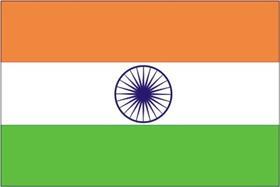
Two of India’s largest terminal operators DP World and APM Terminals have hit out at a government regulatory body after it sought to cap fees charged by operators.
Last month the Tariff Authority for Major Ports (TAMP) implemented an order that cut the amount DP World could charge for the use of its facilities in Chennai by 35 per cent.
The company, however, has won a temporary court order that delayed the implementation of the order.
DP World’s managing director for the Indian subcontinent Anil Singh said regulations on port operators’ fees deterred terminal operators from investing, which caused bottlenecks, and led to increased costs for exporters and consumers. “This actually stifles growth; it stifles innovation; it stifles efficiency,” Mr Singh told the Financial Times of the TAMP regulations.
According to the newspaper, transport and logistics costs in India generally account for 20 per cent of the retail price of a product, compared to around 4-5 per cent in Europe.
APM Terminal's chief executive for the Asia Pacific region Martin Gaard Christiansen told the newspaper the good intentions of the regulations, which aim to prevent exporters from exploitation, “got lost along the way, resulting in a lose-lose situation for the government and private operators”.
The newspaper also related that the cost of exporting a container from India is the highest in the Asia Pacific region, followed by Bangladesh and Sri Lanka, because of regulations and inefficiencies.
“According to the World Bank’s ratings it takes eight documents per shipment to export goods `in India` versus four in Singapore; 17 days versus five in Singapore and a cost of US$1,055 per container compared to US$456 per container,” said Citigroup economist Rohini Malkani.
Mr Singh told the newspaper Jawaharlal Nehru Port near Mumbai - India’s busiest - was ‘bursting at the seams,’ but any new development that could alleviate the congestion was being stymied by regulations.



